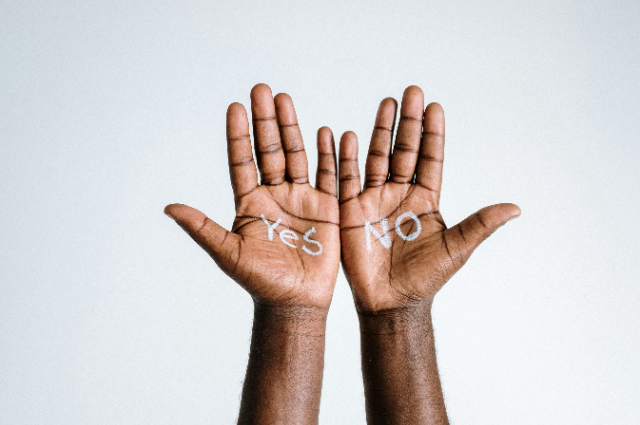Debates, the art of formal argument, which has circulated in the circles of philosophers for centuries, aims to bring them closer to the truth pertaining to various domains or subjects such as politics, demography, anthropology, physics, geography, ethics, chemistry, literature, moral science, etc. The very nature of these arguments from different circles and connecting various domains was to either make the understanding of our world better or to improve upon the existing predicament, provide a solution, and improve upon it. For example, the nature of transgression or crime, what facilitates crime? Is it poor economic conditions? Is it social and psychological deprivation? Is it the failure of law and order, or maybe it can never be avoided because law can only control and never get rid of the true nature of humanity? Similarly, same queries around literature and poetry were raised by the Greek philosopher Plato, who argued, that poetry and literary works must be barred from any republic as they are imitations of the actual object present in front of us, thus twice removed from reality and sending the reader into a whirlwind or whirlpool of emotional fallacies.
Although, these arguments have laid the cornerstone of several civilizational ethics across the globe, and went on to entrance the people’s mind into pushing their intellectual boundaries, enhancing their curiosities, and blooming a lot of questions but inevitably these arguments and debates will never cease to not exist and will always be ranked below the objectivity and truth presented by scientific enquiry.
Debates are categorised by a lot of factors to even consider them as a replacement or a superior method of enquiring the truth, as opposed to scientific enquiry or truth. If we were to take into account the environmental, social, and psychological factors influencing debate, then we can observe two scenarios: a pub debate and a school debate competition. At a pub, people aren’t in the mood to debate the world around them, as it is a place where people come to entertain themselves and forget the woes of their lives and those around them. Even if there were any debate to happen in a place like that, their credibility must be verified, the environment in which the debate took place could be discredited, and the information provided would not be taken at face value or something life-changing. Secondly, a school debate is a competition where the objective of reaching the truth is at its minimum. The event is usually categorised by aggressive tone, seeking the first prize, discrediting the points from multiple views, and determining who is best at debating. Debates in places like these are often viewed as a crowd pleaser or a source of entertainment.
Secondly, debates with people could be coming from multiple biases, which could lead to faulty versions of objectivity or truth. For example, a student debating about the best career option could also be marred with “ Shiny Object Syndrome”. This phenomenon could best be described in the case of a student choosing their career as when they have passed their 10th boards and have taken science, then after 12th, they choose to pursue Chartered Accountancy, and then midway into their CA course, they choose to drop out and pursue journalism instead. They could provide several arguments as to why they thought the next opportunity was better than the previous one, but one could understand that the reasons might not be enough and that the person is using the biases of others in a particular field to analyze their scenario rather than objectively utilizing their thinking and brain. Another phenomenon that leads to faulty debates is known as “ Recency Bias”. Recency Bias is the tendency to overemphasize recent or immediate experiences or events to evaluate future outcomes rather than relying on centuries or decades of past data. For example, deciding on making quick money based on peer pressure around you instead of analyzing your capabilities and potential as an individual, and playing the long game in order to succeed.
Debates in the modern world have been modified to fit the category of philosophy, which has various angles covering them. Firstly, the modern world is filled with various dilemmas about day-to-day problems that debating about subjects outside of work that people do in order to sustain themselves requires a lot of cognitive strength, which is already crumbling under a lot of pressure from overwork and information overload. Secondly, in order to organize debates, it’s mandatory that a safe and secure environment be organized in order to keep the mind safe from danger and external pressure, in order to accumulate points inside the head and convey them efficiently. Third, when people debate on a lot of issues, convey innumerable points about those issues, then the chances are that what they are conveying could be taken on face value without any proper research or methodology. For example, the issue of road accidents in India, where most people debating the issue could blame the drivers for not driving properly, but the issue is widespread and covers a lot of topics like improper road infrastructure, poor facilities for drivers, and improper training and licensing issues. Fourth, debates and discussions with a different set of people will lead us to a different set of views with no end or any conclusive research. It is imperative to organize research while finding a solution to any societal or scientific problem so that the findings remain unchanged by the biases of one individual. Fifth, debates can only hold up any value if the theories propounded in those debates are verified by proper scientific enquiry, research, and accreditation. Debates on random locations with random people can lead to nothing but fights, going in circles without clarifying the veracity of the claims and talks given in the debates, with a waste of one’s time and mental energy, and inconsequential results. Debates have to be organised to establish universal truths to unite mankind.

